Did you recently take your first breaths underwater, complete your PADI Open Water Diver course and now you are completely hooked with SCUBA diving? All you can think of is returning to the warm & sunny tropics to actually become a diving professional?
Divemaster Course in Thailand
I remember when I started planning my own professional dive training, I found that the amount of information was absolutely overwhelming and it was quite hard to separate the genuinely useful facts from the sales pitches. Therefore, I have done a bit of legwork, sorted through some of the frequently asked questions, and put together this handy list for you!
1. The decision
Are you still at a very early stage of your diving journey and aren’t even sure if the PADI Divemaster course is the right thing for you to do? It is indeed the first professional level diving course and will take a lot longer than any recreational diving courses you would have taken so far.
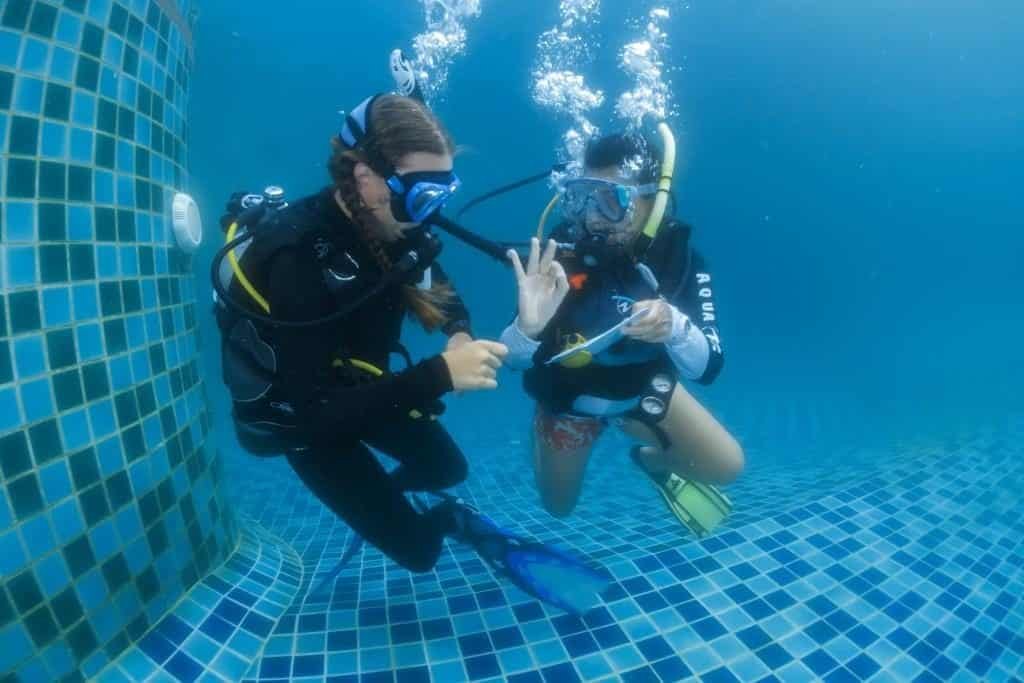
However, even if you don’t plan to take up diving as a profession (yet) and find the thought of being responsible for other divers under water rather daunting, you will certainly benefit from the Divemaster training. Sure, a big portion of the course will be about (dive) leadership, but you will also learn so much more about diving techniques, marine life, navigation and other dive related topics.
2. The pre-requisites
To enrol in your PADI Divemaster course, you need to be at least 18 years old, have a minimum of 40 logged dives and be certified as PADI Advanced Open Water Diver and PADI Rescue Diver (or the equivalent from a different training agency). You also need to complete some First Aid training, but this is usually part of your Rescue course, so do make sure it hasn’t expired yet (it will be valid for 24 months).
You need to make sure that you are fit for diving, too. While for most recreational courses a self-statement on the medical form is enough, once you start with your professional dive training your fitness will have to be evaluated by a physician. Depending on your overall health and fitness this is something you might want to check with your GP at home or even a specialized diving physician.
3. The timeframe
Be realistic about how much time you can invest and what your expectations for your Divemaster training really are. Depending on your previous diving experience, the location and the season you are choosing for your training, a Divemaster course can take up anything from four weeks to a few months.
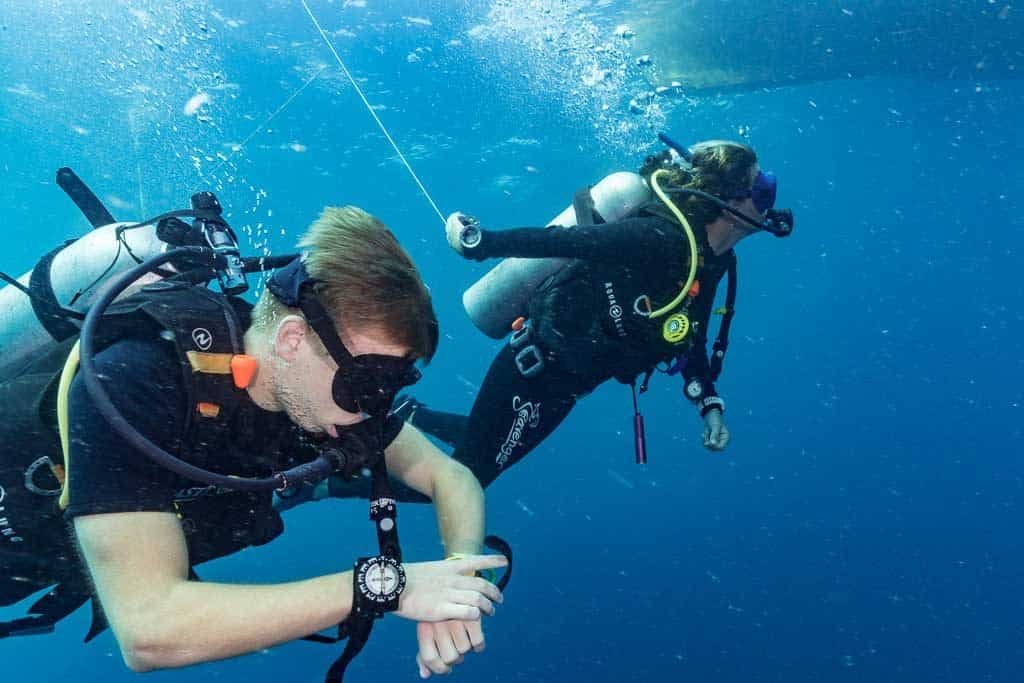
If you still need to log some more dives or complete any of the prerequisite courses, then you need to make sure to add some extra time to your schedule.
Depending on how much time and energy you are willing (or able) to invest into your Divemaster training, you will receive a different outcome in the end. Yes, it is possible to tick the boxes and meet all performance requirements in just a few weeks, but ask yourself if this will make you the best diving professional you can be? My personal recommendation is to plan plenty of time and to be as flexible as possible on your onward travel plans.
4. The budget
Take your time comparing different offers from a variety of dive centres and if something is unclear, ask them to clarify what is included and what’s not. For example, some schools include accommodation or equipment packages while others don’t – this can make a massive difference in the overall cost for your Divemaster training.
Some places even offer packages where you can ‘work off’ your fees in return for ‘free’ training. Unfortunately, I have heard a lot of bad stories about these so called internships (some even calling it ‘modern slavery’), so you should definitely try and find some real testimonials before committing to a work-in-exchange option.
As a general rule, remember if an offer sounds too good to be true, it probably is! Just as with anything, you get what you pay for and you should look at your Divemaster training as an investment in your (diving) career.
5. The equipment
When comparing different offers, you should also look closely at what is included in terms of equipment rental and which items you need to purchase for yourself. Here at Master Divers for example, we include the main parts of your equipment, and you will only have to purchase your ‘personal items’ such as your own computer or compass for example.
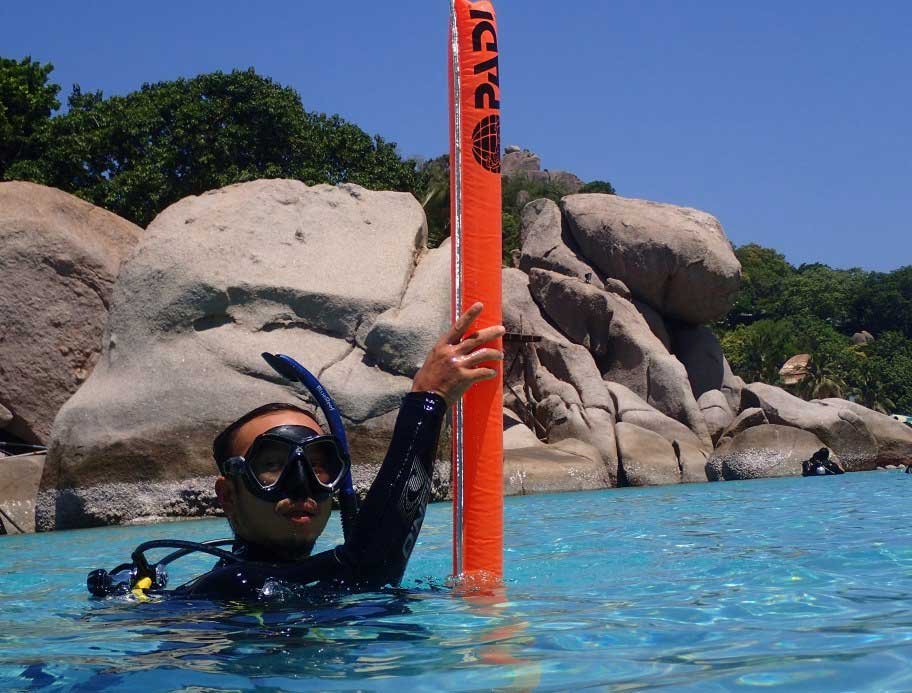
For me, buying shiny new SCUBA toys has always been one of the most fun ways to spend my money. In fact, I still dive with the same mask (with the same prescription lenses) that I bought at the very beginning of my Divemaster course. So now that you start with your own ‘diving journey’ you’ll probably be buying your first dive computer – and how cool is it, to actually have all of your training dives logged right in your brand new computer?!
If you plan on buying your own equipment – and remember you will need to if you’re looking to find work afterwards – wait until you are actually starting to train with the dive centre of your choice. They will be help you to pick out what’s most suitable for your needs. You are buying equipment that, when looked after properly, should last years. Your instructors can help you select the gear that is best for you now, but that will also, based on your career plans, will be the right gear for you in the future. Often you might even get a discount on your equipment if you buy directly through them.
6. The logistics
There are a quite a few logistical steps to be planned ahead. Depending on the location(s) you choose for your training, and the planned duration of your trip you should start with the planning phase at least half a year in advance.
Here are a few notes on what you should think about when you plan to take your course with us in Thailand:
- Visa – In most cases the ‘visa on arrival’ (30 days) won’t give you enough time for your Divemaster training, so you should look into the option of a Tourist visa or even an Educational visa. Visa regulations fluctuate a lot and therefore I recommended to check with your nearest Thai embassy or consulate.
- Travel cost – Depending on the season you are coming in, it is a good idea to start checking for flights early to secure the best deals. Are you planning on bringing your own dive equipment with you? Check out the luggage allowances of your airline and compare some rates as they can vary massively.
- Vaccinations – Your GP should be the first point of contact for which vaccinations are needed for Thailand. This article, which we wrote a little while ago, is a great guideline, too.
- Accommodation – You will need a booking for your accommodation for the first couple of nights in Thailand for visa purposes. Even more so, you will be glad to have a place to rest your head after long hours of travelling and should plan a few days to get used to the tropical climate and get over your jet lag. Beyond that don’t worry too much about finding your long-term accommodation just yet, as this is usually a lot easier once you are here in person and can see what’s actually available at the time.
- Packing list – From clothes or cosmetics to basic household items, you can buy almost anything in Thailand! Do yourself a favour and pack light and limit your packing list down to the essentials. One thing I do recommend to bring with along is a good rain jacket that will keep you dry (and warm) during monsoon season!
7. The benefits
When I had to make my choice between two different dive centres, I found it tricky to decide which one I wanted to do my training with. At the end of the day, I was going to spend at least a few months with the Instructors and Divemasters there and wanted to make sure I get the most out of my course(s)!
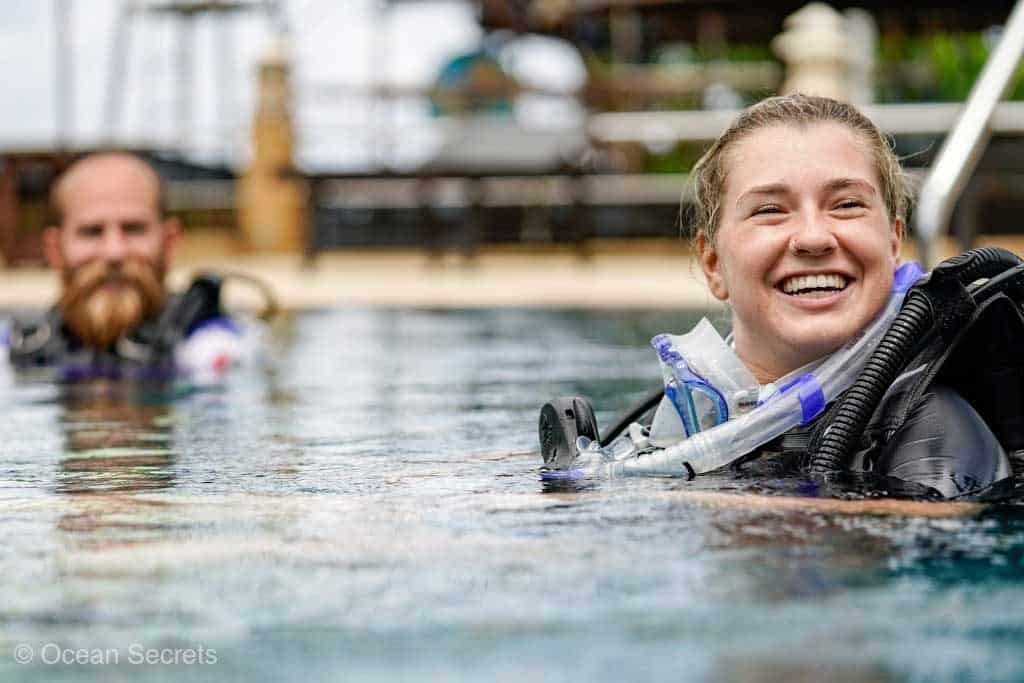
Unfortunately quite often, divers purely base their decision on where they can get the cheapest course, but remember cheap isn’t always the best when it comes to the overall quality of your training.
There are so many additional values and benefits you can get from a dive centre and these are just a few things you should put into consideration:
- Conservation – More and more divers have a strong sense for environmental issues, but not all dive centres have the budget, staff or time to put a focus on conservation topics within their business. However, if those topics are important for you, make sure to select a dive centre that will include a conservation message in all aspects of their diving education.
- Networking – The diving community is a very tight community and once you start networking you will soon realize that everyone knows everyone. A good dive centre will help you with their contacts within the industry and their recommendation can open many doors in your future diving career.
- Job opportunities – Make sure to check out what opportunities are waiting for you once you have completed your course. A good dive centre will teach and mentor you to a point where you are ‘work ready’ and even help with your diving CV. Most medium sized dive centres, such as Master Divers for example, like to employ from within their own pool of candidates, which can be a big bonus, too. If you are already thinking one step further of becoming an Instructor, make sure that you are picking an IDC centre where you can continue with your diving education beyond your Divemaster training.
Now I know that is a lot of information to take in, but don’t get overwhelmed! I hope this list is a good reference and helps with your planning. And remember, if you have any questions or can’t find all the information that you need, you are always just an email away from getting all your answers!
Photo credits: Elaine Brett, Dan Lee & Rob Kelly.
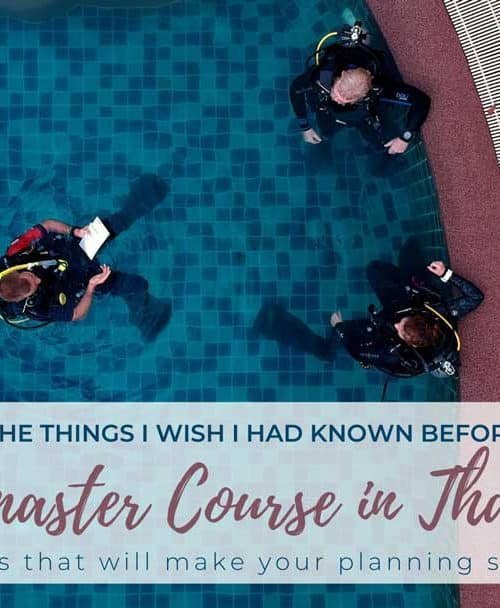

Thanks for sharing useful information with us. This is such a great article.
Thank you very much! 🙂